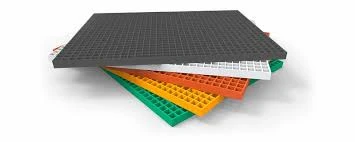
-
 Afrikaans
Afrikaans -
 Albanian
Albanian -
 Amharic
Amharic -
 Arabic
Arabic -
 Armenian
Armenian -
 Azerbaijani
Azerbaijani -
 Basque
Basque -
 Belarusian
Belarusian -
 Bengali
Bengali -
 Bosnian
Bosnian -
 Bulgarian
Bulgarian -
 Catalan
Catalan -
 Cebuano
Cebuano -
 China
China -
 China (Taiwan)
China (Taiwan) -
 Corsican
Corsican -
 Croatian
Croatian -
 Czech
Czech -
 Danish
Danish -
 Dutch
Dutch -
 English
English -
 Esperanto
Esperanto -
 Estonian
Estonian -
 Finnish
Finnish -
 French
French -
 Frisian
Frisian -
 Galician
Galician -
 Georgian
Georgian -
 German
German -
 Greek
Greek -
 Gujarati
Gujarati -
 Haitian Creole
Haitian Creole -
 hausa
hausa -
 hawaiian
hawaiian -
 Hebrew
Hebrew -
 Hindi
Hindi -
 Miao
Miao -
 Hungarian
Hungarian -
 Icelandic
Icelandic -
 igbo
igbo -
 Indonesian
Indonesian -
 irish
irish -
 Italian
Italian -
 Japanese
Japanese -
 Javanese
Javanese -
 Kannada
Kannada -
 kazakh
kazakh -
 Khmer
Khmer -
 Rwandese
Rwandese -
 Korean
Korean -
 Kurdish
Kurdish -
 Kyrgyz
Kyrgyz -
 Lao
Lao -
 Latin
Latin -
 Latvian
Latvian -
 Lithuanian
Lithuanian -
 Luxembourgish
Luxembourgish -
 Macedonian
Macedonian -
 Malgashi
Malgashi -
 Malay
Malay -
 Malayalam
Malayalam -
 Maltese
Maltese -
 Maori
Maori -
 Marathi
Marathi -
 Mongolian
Mongolian -
 Myanmar
Myanmar -
 Nepali
Nepali -
 Norwegian
Norwegian -
 Norwegian
Norwegian -
 Occitan
Occitan -
 Pashto
Pashto -
 Persian
Persian -
 Polish
Polish -
 Portuguese
Portuguese -
 Punjabi
Punjabi -
 Romanian
Romanian -
 Russian
Russian -
 Samoan
Samoan -
 Scottish Gaelic
Scottish Gaelic -
 Serbian
Serbian -
 Sesotho
Sesotho -
 Shona
Shona -
 Sindhi
Sindhi -
 Sinhala
Sinhala -
 Slovak
Slovak -
 Slovenian
Slovenian -
 Somali
Somali -
 Spanish
Spanish -
 Sundanese
Sundanese -
 Swahili
Swahili -
 Swedish
Swedish -
 Tagalog
Tagalog -
 Tajik
Tajik -
 Tamil
Tamil -
 Tatar
Tatar -
 Telugu
Telugu -
 Thai
Thai -
 Turkish
Turkish -
 Turkmen
Turkmen -
 Ukrainian
Ukrainian -
 Urdu
Urdu -
 Uighur
Uighur -
 Uzbek
Uzbek -
 Vietnamese
Vietnamese -
 Welsh
Welsh -
 Bantu
Bantu -
 Yiddish
Yiddish -
 Yoruba
Yoruba -
 Zulu
Zulu
fiberglass pipe fittings
Understanding Fiberglass Pipe Fittings Advantages and Applications
Fiberglass pipe fittings have emerged as a prominent choice in various industries due to their unique properties and advantages. Made from a composite material of glass fibers and resin, these fittings are lightweight, durable, and resistant to a range of environmental conditions. This article explores the benefits of fiberglass pipe fittings, their applications, and why they are becoming a preferred option for many applications.
Advantages of Fiberglass Pipe Fittings
1. Corrosion Resistance One of the most significant advantages of fiberglass pipe fittings is their resistance to corrosion. Unlike traditional metal fittings that can rust or degrade over time due to exposure to chemicals or moisture, fiberglass does not corrode. This makes them an ideal choice for industries dealing with aggressive chemicals, ensuring longevity and reliability of the piping system.
2. Lightweight Fiberglass fittings are considerably lighter than metal alternatives. This characteristic not only simplifies transportation and installation but also reduces the structural load on supporting systems. In applications where weight is a critical factor, such as elevated piping systems, the lightweight nature of fiberglass fittings can lead to significant cost savings and ease of installation.
3. Thermal Insulation Fiberglass fittings have excellent thermal insulation properties. This characteristic helps to maintain the temperature of the transported fluids and reduces energy costs associated with heating or cooling systems. Insulating properties also help to minimize condensation, which can lead to further corrosive damage in other materials.
4. Strength and Durability While being lightweight, fiberglass is exceptionally strong. It has high tensile strength and can withstand considerable pressure without deforming. Fiberglass fittings are resilient to impact and can perform under severe environmental conditions, including high temperature and pressure, making them suitable for a wide range of applications.
5. Low Maintenance Fiberglass pipe fittings require significantly less maintenance compared to traditional materials. Their resistance to corrosion and chemical reactions means fewer repairs and replacements over time, translating to cost savings for businesses.
6. Versatility Fiberglass fittings come in various types and sizes, making them suitable for multiple applications across different industries. They can be molded into complex shapes to meet specific engineering requirements, allowing for customization in various systems.
fiberglass pipe fittings

Applications of Fiberglass Pipe Fittings
Fiberglass pipe fittings are utilized in numerous industries, each benefiting from their unique properties. Some common applications include
- Chemical Processing In chemical plants where hazardous substances are transported, fiberglass fittings provide the necessary corrosion resistance and ensure safe handling of aggressive chemicals.
- Water and Wastewater Treatment Fiberglass fittings are widely used in water treatment facilities. Their resistance to corrosion, lightweight design, and durability make them an excellent choice for both above-ground and underground piping systems.
- Oil and Gas The oil and gas industry often utilizes fiberglass fittings due to their ability to withstand extreme conditions, including high pressures and chemical exposure. They play an essential role in transportation and distribution systems.
- Marine Applications In marine environments, where saltwater can quickly degrade traditional materials, fiberglass’s corrosion resistance is critical. These fittings are used in boatbuilding, dock systems, and other coastal installations.
- Mining Operations Fiberglass fittings are employed in mining for transporting slurry and other abrasive materials due to their strength and durability.
Conclusion
Fiberglass pipe fittings represent a remarkable advancement in piping technology. With their combination of corrosion resistance, lightweight design, strength, and versatility, they are a preferred choice across various industries. As businesses continue to seek durable and low-maintenance solutions, the demand for fiberglass fittings is expected to rise, making them a cornerstone in modern piping systems. Whether in chemical processing, water treatment, or marine applications, their unique properties ensure that they remain a reliable option for the future.









